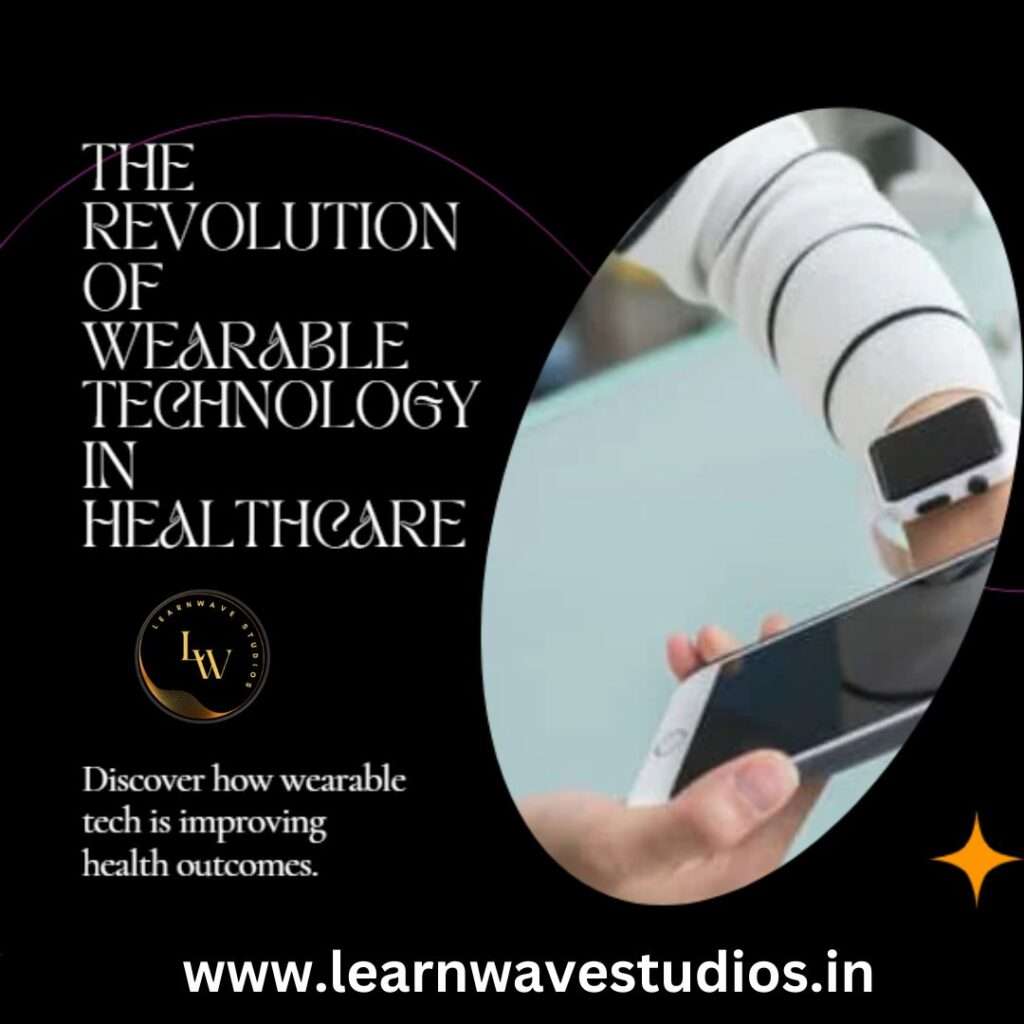In today’s fast-paced world, the intersection of technology and healthcare has given rise to remarkable innovations, particularly in the form of wearable technology. Wearable devices are not just trendy accessories; they’re playing a pivotal role in improving healthcare outcomes for individuals across the globe.
Wearable technology in healthcare is not a new concept, but its advancements and impact on patient care have been nothing short of game-changing. From smartwatches that monitor vital signs to fitness trackers that encourage physical activity, these devices are empowering individuals to take charge of their health like never before.

Understanding Wearable Technology in Healthcare
What are Wearable Devices?
Wearable devices encompass a wide range of gadgets specifically designed to be worn as accessories or incorporated into clothing. These devices can collect, track, and transmit data related to the user’s health and activities.
The Impact on Patient Care
One of the most significant benefits of wearable technology in healthcare is the ability to continuously monitor patients, providing real-time data to healthcare professionals. This constant stream of information enables timely interventions and personalized care, ultimately leading to improved health outcomes.
Key Areas of Impact
Remote Patient Monitoring
Wearable devices enable remote patient monitoring, allowing healthcare providers to track patients’ vital signs and symptoms without the need for frequent in-person visits. This is particularly valuable for individuals with chronic conditions, as it provides a means for early detection of anomalies and prevents complications.
Health and Wellness Tracking
Fitness trackers and smartwatches have revolutionized the way individuals approach their own health and fitness. By monitoring activities, sleep patterns, and vital signs, these devices motivate users to make healthier choices and stay active, contributing to the prevention of chronic diseases.
Disease Management
In the realm of chronic disease management, wearable technology plays a crucial role in assisting patients with conditions such as diabetes, hypertension, and heart disease. These devices provide insights into daily fluctuations, allowing for personalized treatment adjustments and better disease control.
Telemedicine and Virtual Care
The integration of wearable technology with telemedicine platforms has facilitated virtual consultations and remote diagnosis. Patients can transmit vital signs and other health metrics to their healthcare providers, enabling informed decision-making and reducing the need for in-person visits.
Challenges and Future Directions
While wearable technology holds immense promise, challenges such as data security, interoperability, and regulatory compliance must be addressed to fully realize its potential. Additionally, ongoing research and development efforts are focused on enhancing the accuracy and reliability of these devices, as well as expanding their capabilities to cover a broader spectrum of health parameters.
As the healthcare landscape continues to evolve, wearable technology is poised to have an even greater impact on improving patient outcomes, preventive care, and overall wellness. The future of healthcare is undeniably intertwined with these innovative devices, offering a glimpse into a world where personalized, data-driven care is the norm.
In conclusion, wearable technology is not merely a trend; it is a catalyst for a paradigm shift in healthcare. By harnessing the power of wearable devices, healthcare professionals and individuals alike can work together to achieve better health outcomes and an improved quality of life.
With its potential to transform healthcare as we know it, wearable technology is undoubtedly a key player in shaping the future of the industry. As we embrace these advancements, we move closer to a world where health and technology intersect seamlessly for the betterment of society.

